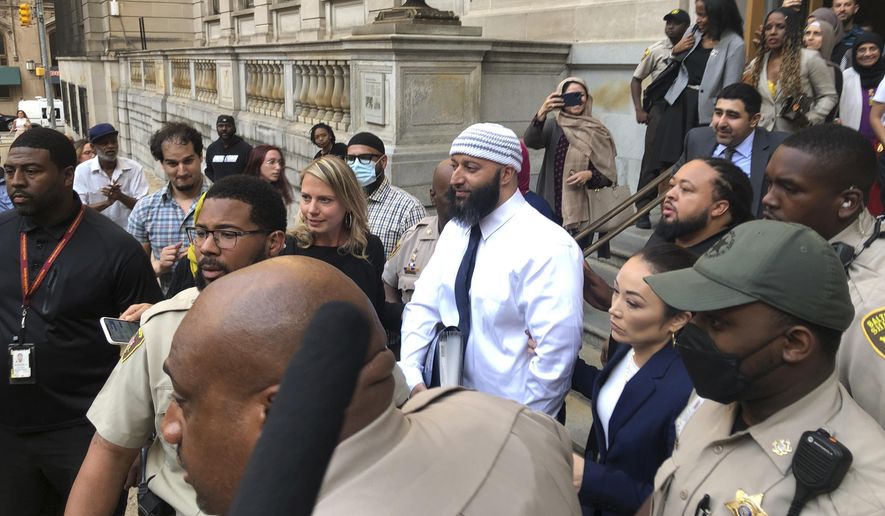ANNAPOLIS, Md. — Adnan Syed’s lawyer asked Maryland’s highest court on Wednesday to overturn a lower court’s ruling that reinstated his murder conviction from more than two decades ago - after he was freed last year in a legal case that gained international attention from the hit podcast “Serial.”
Syed’s lawyer also is asking the court to prevent her client from being incarcerated while the Supreme Court of Maryland’s review is pending
“He is grateful that the victim’s representative and Attorney General have consented to the stay,” a statement from the Maryland public defender’s office said while announcing the court filings. “Reincarcerating Adnan would be devastating for him and his family and would be an affront to justice.”
Syed’s counsel filed a petition that asks the state’s highest court to review several legal issues raised by the victim’s family, who contended they were not given enough notice to testify at a court hearing.
The legal issues include whether former Baltimore State’s Attorney Marilyn Mosby’s decision to dismiss the charges against Syed last year made the family’s court challenge moot. The issues also include whether attendance on Zoom satisfied the right of the victim’s representative to attend the hearing and whether the notice of the hearing was sufficient.
Syed’s lawyer also is asking the court to consider whether the Appellate Court of Maryland’s reversal is appropriate without showing that the result of the hearing that decided his release would have been different.
“Adnan’s innocence is not at issue, but his rights as a defendant and freedom as an exoneree are directly impacted by the Appellate Court of Maryland’s decision,” said Erica Suter, Syed’s lawyer, in a statement.
Suter said the issues raised in the case “have broader implications for our entire legal system, most notably the authority of the State to dismiss a case, the role of victims’ representatives in proceedings to redress unjust convictions, and the restrictions placed on judges’ discretion to utilize remote communication services like Zoom.”
“We hope that the Supreme Court will consider these vital issues of first impression,” Suter said.
David Sanford, an attorney for the victim’s family, said he’s confident that the state’s highest court will recognize victims’ rights.
“The Appellate Court of Maryland recognized that victims in the state of Maryland have rights,” Sanford said. “We are confident that the Maryland Supreme Court will also recognize those rights and hold that victims may not only receive notice of and attend a vacatur hearing, but also meaningfully participate in that hearing.”
Syed was 17 when his high school ex-girlfriend and classmate, Hae Min Lee, was found strangled to death and buried in a makeshift grave in 1999. He was arrested weeks later and ultimately convicted of murder. He received life in prison, plus 30 years.
Last year, Syed regained his freedom when Baltimore prosecutors moved to vacate his conviction, saying they reviewed the case and found alternative suspects as well as unreliable evidence used at trial.
But the victim’s family said they received insufficient notice to attend the September vacatur hearing in person, which violated their right to be “treated with dignity and respect,” and the state’s intermediate appellate court agreed. In a 2-1 decision that was stayed for 60 days, the judges reinstated Syed’s conviction and ordered a redo of the hearing in question.
The court ruled that giving the victim’s brother, Young Lee, only one business day before the hearing was “insufficient time to reasonably allow Mr. Lee, who lived in California, to attend the hearing in person,” and required him to attend the hearing remotely.
Syed has remained free since the court’s ruling. In Wednesday’s court filing, Syed’s counsel noted he has been employed since December, working as a Program Associate at Georgetown University’s Prisons and Justice Initiative.
The filing also noted that Syed has been caring for his elderly parents. His father suffers from dementia and his mother has been diagnosed with leukemia.
“Mr. Syed’s return has meant a better quality of life for his loved ones as he is able to assist with the day-to-day management of his parents’ health, transport them to doctor’s appointments, and generally be of service to them,” the court filing said.




Please read our comment policy before commenting.